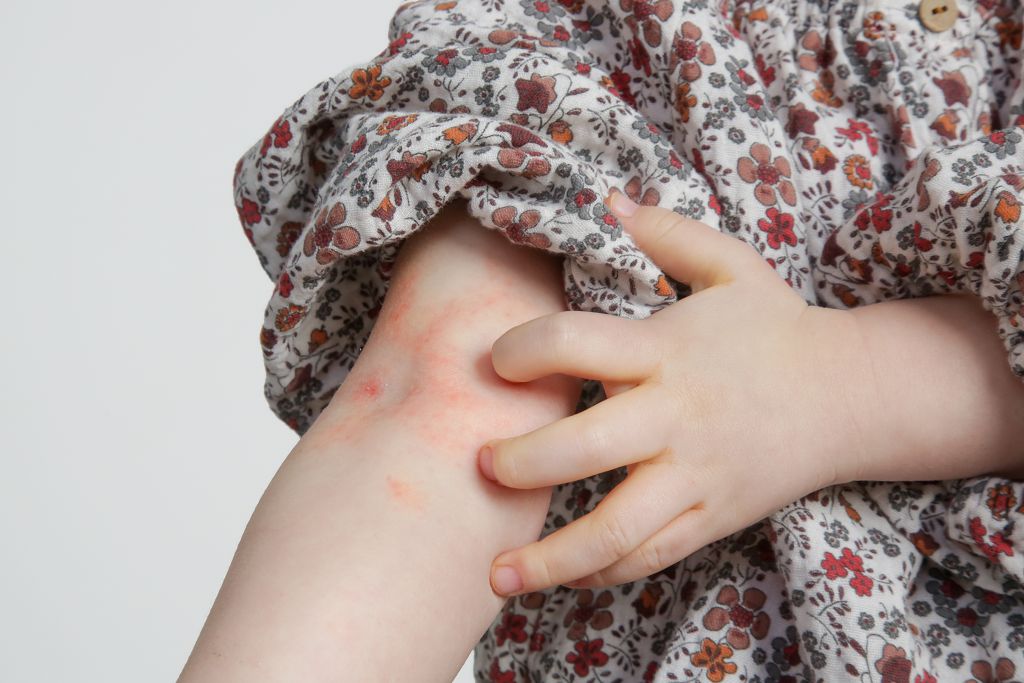Correct Skin Care
- Moisturizing:
- Moisturizing is the most important step for caring for atopic dermatitis. The skin of patients with atopic dermatitis lacks of protection and tends to be dry and itchy. Appropriate moisturizers are needed based on the skin conditions, including ointment, cream, and lotion. The latter type is less greasy. Moisturizers should be applied 2-3 times daily, adjusting the frequency according to climate, humidity, and the use of air conditioner to keep the skin moisturized, maintain normal skin functions, and increase endurance.
- Apply moisturizers immediately after bath when the skin is still wet.
- Do not use moisturizers that contain fragrance and preservatives to avoid irritation.
- Proof supports that moisturizing can relieve the symptoms and reduce the amount of medicine use.
- Cleansing:
- Bath or shower with lukewarm water (same as body temperature or slightly lower than body temperature). Over cleansing or high water temperature will wash off the skin barrier.
- Children with atopic dermatitis have exceeding amount of staphylococcus aureus on the skin, which leads to infection when the skin is damaged; therefore, appropriate daily cleansing is crucial.
- Avoid soap or bath products that contain fragrance and preservatives.

Environment Control
Environmental pollution source is one of the crucial factors that cause atopic dermatitis. Lowering the stimulants in the environment is an important step on controlling atopic dermatitis. One should try to avoid allergens.
- Avoid Allergens
- Dust mite and pet dander are common allergens. Avoid keeping pets at home, clean the house regularly to reduce dusts, or use air purifier.
- Do not use carpet, straw mat, and tatami in the house. Use blinds instead of heavy fabric curtains. Avoid stuffed animals.
- Wash pillows, sheets, and beddings with 55 ℃ water once a week.
- Humidity and Temperature Control
- Humidity control can prevent dry skin. High humidity will increase the reproduction of dust, mite and mold. 50% of humidity is the best.
- It is stuffy and humid in summer. Sweats irritate skin easily; therefore, it is important to control the indoor temperature. Use damp towel to wipe off sweats. Keep skin moisturized in winter as low temperature and dry environment causes drier skin.
Diet
- No junk food, fry food, chocolate, curry, and French fries.
- Reduce the intake of processed food. Increase the intake of fresh food.
- Mild cooking, such as boil and steam.
- Avoid the intake of cold food, especially when discharge occurs.
- Keep diet log to figure out what worsens the symptoms.

